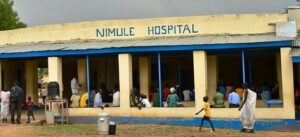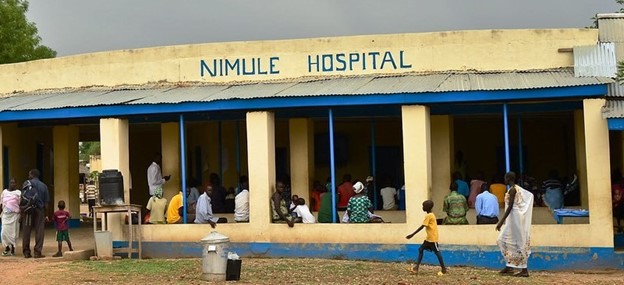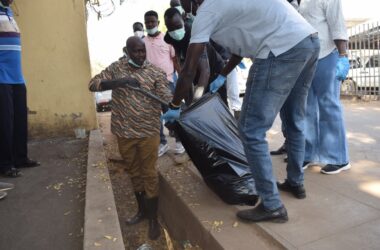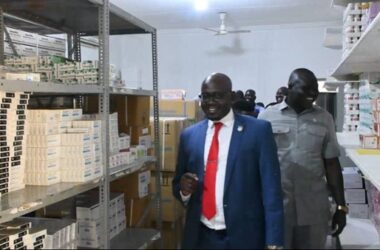
By Alan Clement
Nimule Hospital in Eastern Equatoria State faced shortage of essential medicines jeopardizing its ability to handle emergencies and routine patient care.
Dr. David Nyuma, the Medical Director of Nimule Hospital, told No. 1 Citizen Newspaper in an interview on Friday, August 29th, 2025, that the shortage stems from delayed and insufficient consignments.
“We received the last consignment in April 2025 with the next due this month, but up to now, we have not received it and we are not sure whether it will come or not,” Dr. Nyuma said.
According to Dr. Nyuma, even when deliveries arrive, the quantities are insufficient to sustain the hospital’s operations for the intended four-month period.
He cited the example of normal saline, a vital intravenous fluid used in trauma and dehydration cases, of which only about three cartons were supplied.
The hospital also received only 800 tablets of ciprofloxacin, a key antibiotic for treating typhoid and other bacterial infections, a number Dr. Nyuma described as far below the facility’s demand.
Nimule Hospital serves not only the border town and surrounding communities but also patients from Uganda’s Elegu town, as well as South Sudanese refugees from Nyumanzi and Pagirinya camps in northern Uganda.
The influx of patients, coupled with free services and the recent outbreak of cholera has further overwhelmed the facility.
“We had an outbreak of cholera from June up to now, and we still have cases. So far, a cumulative 415 cases have been managed here, and currently, we have one case in isolation,” Dr. Nyuma revealed.
The shortages have forced the hospital to rotate limited supplies with smaller health centers and direct patients to purchase drugs from private sources.
But according to the director, this leaves many vulnerable, especially at night when clinics and shops are closed.
Adding to the crisis, Nimule Hospital’s ambulance is also grounded due to lack of spare parts and fuel.
“Our ambulance is not operational currently, because there are spare parts that we are lacking. Fuel is another issue which affects the operation of the ambulance and the facility too,” Dr. Nyuma said.
Dr. Nyuma has urged the government and development partners to prioritize strengthening South Sudan’s health system, stressing that national development hinges on the well-being of its citizens.
“Health workers need medical supplies to save lives. Without them, we are helpless,” he said, highlighting the dire conditions at Nimule Hospital.
Despite formally raising concerns with the State Ministry of Health, the hospital continues to face worsening shortages, forcing frontline workers to improvise.
The crisis underscored the urgent need for reliable supply chains, emergency preparedness, and sustained investment in public health infrastructure especially in strategic border areas serving both domestic and cross-border populations.
Drug shortages can adversely affect drug therapy, compromise or delay medical procedures, and result in medication errors.




